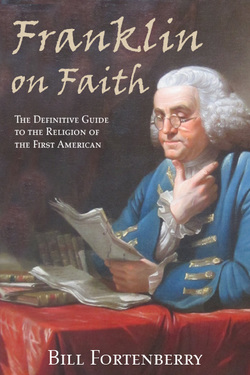8 Franklin Quotes You Won't Find in History Books
|
|
"Those Doctrines delivered by our Saviour and the Apostles, which are absolutely necessary to be believed, are so very plain, that the meanest Capacities, may easily understand ’em."
"I would advise these Reverend Gentlemen impartially to read the Scriptures." "If Hemphill endeavoured to subvert [the Doctrine of Christ’s Satisfaction], he will not only be condemned by them, but by all good Christians." "It is the Duty of every christian Minister to explode such Errors, which have a natural Tendency to make Men act as if Christ came into the World to patronize Vice, and allow Men to live as they please." "Christ gave himself for us that he might redeem us from all Iniquity, and purify to himself a peculiar People zealous of Good-Works. And there is scarcely a Chapter in the whole Gospels or Epistles from which this Doctrine can’t be prov’d." "They should acknowledge Jesus Christ to be the Messiah promised by the Prophets, the Son of God." "I am conscious I believe in Christ, and exert my best Endeavours to understand his Will aright, and strictly to follow it." "Christ by his Death and Sufferings has purchas’d for us those easy Terms and Conditions of our Acceptance with God, propos’d in the Gospel, to wit, Faith and Repentance." |
Read these quotes in context in my new book Franklin on Faith
Each of these quotes was taken from a series of Christian pamphlets that Franklin wrote as a twenty-nine year old young man in 1735. He explained the occasion for writing these pamphlets in his autobiography:
About the Year 1734. there arrived among us from Ireland, a young Presbyterian Preacher named Hemphill, who delivered with a good Voice, and apparently extempore, most excellent Discourses, which drew together considerable Numbers of different Persuasions, who join’d in admiring them. Among the rest I became one of his constant Hearers, his Sermons pleasing me, as they had little of the dogmatical kind, but inculcated strongly the Practice of Virtue, or what in the religious Stile are called Good Works. Those however, of our Congregation, who considered themselves as orthodox Presbyterians, disapprov’d his Doctrine, and were join’d by most of the old Clergy, who arraign’d him of Heterodoxy before the Synod, in order to have him silenc’d. I became his zealous Partisan, and contributed all I could to raise a Party in his Favour; and we combated for him a while with some Hopes of Success. There was much Scribbling pro and con upon the Occasion; and finding that tho’ an elegant Preacher he was but a poor Writer, I lent him my Pen and wrote for him two or three Pamphlets, and one Piece in the Gazette of April 1735. Those Pamphlets, as is generally the Case with controversial Writings, tho’ eagerly read at the time, were soon out of Vogue, and I question whether a single Copy of them now exists.
Fortunately, Franklin was mistaken in thinking that none of his pamphlets had survived. All three of them have been recovered, and they provide tremendous insight into the religious beliefs of this man known affectionately as “The First American.”
Franklin on Faith is the only complete collection of Franklin's writings on religion, and it includes each of these pamphlets in its entirety. You can order your copy from Amazon at: http://www.amazon.com/dp/1506127355
Franklin on Faith is the only complete collection of Franklin's writings on religion, and it includes each of these pamphlets in its entirety. You can order your copy from Amazon at: http://www.amazon.com/dp/1506127355

